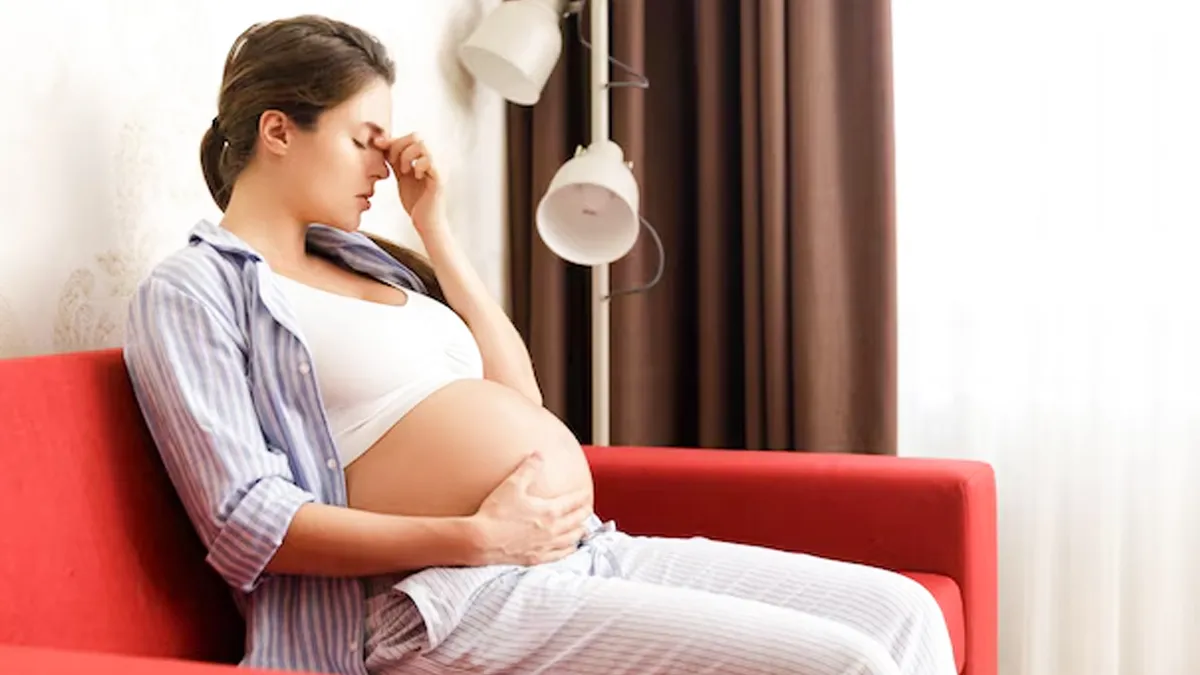
According to Dr Vijaykumar Malladi, M.S. (Surgery), FIAGES, a leading Laparoscopic and Robotic Surgeon and the Director of Mitr Hospital in Kharghar, Navi Mumbai, “Haemorrhoids are one of the most common concerns during pregnancy, especially in the third trimester. They occur due to increased pressure on the pelvic veins, hormonal changes, and constipation, but they can appear at any stage of pregnancy, particularly if you’ve experienced similar issues earlier. Here are seven early signs of haemorrhoids that you shouldn’t ignore in your pregnancy.”
This sensation, known as tenesmus, makes you feel like you still need to pass stool even after a successful bowel movement. It is caused by the swollen haemorrhoid tissue pressing against the rectum, mimicking the feeling of needing to go.
Even if the pain is not sharp, you may experience a dull ache or soreness that lingers for a short while after using the toilet. This feeling is caused by inflammation in the venous tissue that takes time to settle back down.

This is often the first visible sign; you may notice small streaks of bright red blood on the toilet paper or in the toilet bowl. Although usually painless with internal haemorrhoids, any instance of rectal bleeding should be checked by your healthcare provider to rule out other causes.
“A persistent, often intense, itchy feeling around the anal opening is a primary symptom of external haemorrhoids. This irritation can worsen after a bowel movement or if the area remains moist, leading to significant discomfort,” says Vijaykumar Malladi.

You may feel a tender, noticeable lump or swelling just under the skin around the anus. This is often an external haemorrhoid and may become more pronounced when sitting for long periods.
Don't Miss: 5 Early Symptoms of Brain Cancer: How to Spot the Signs
This pain occurs because the swollen veins are aggravated by the passage of hard stool or excessive straining. If the haemorrhoid is thrombosed (has a blood clot), the pain can be severe and acute, requiring immediate medical attention.
Since pregnancy increases pressure on the pelvic veins, sitting or standing for long periods can cause blood to pool in the rectal area. This pooling leads to increased swelling and pain in existing or forming haemorrhoids, making resting on your side necessary for relief.

● A growing uterus increases pressure on the rectal veins
● Hormonal changes slow down intestinal movement
● Constipation leads to straining
● Reduced mobility in later months
Image credits: Freepik
Don't Miss: 7 Early Signs Of Arthritis You Shouldn’t Ignore
For more such stories, stay tuned to HerZindagi.
Also watch this video
Herzindagi video
Our aim is to provide accurate, safe and expert verified information through our articles and social media handles. The remedies, advice and tips mentioned here are for general information only. Please consult your expert before trying any kind of health, beauty, life hacks or astrology related tips. For any feedback or complaint, contact us at compliant_gro@jagrannewmedia.com.